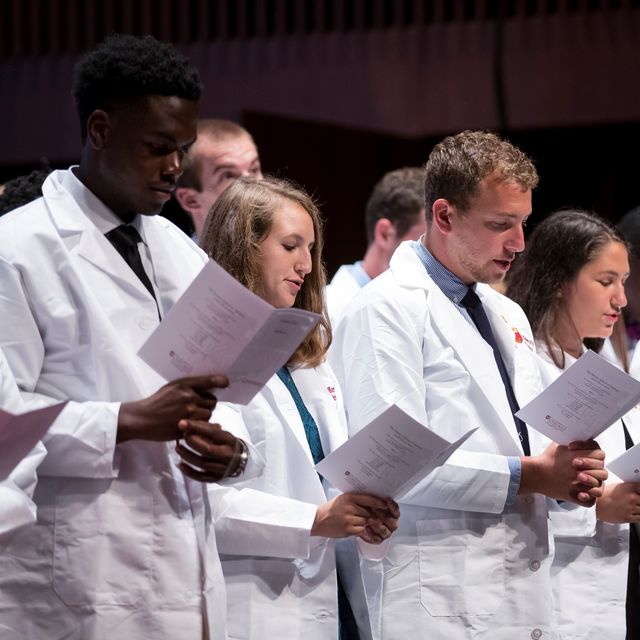Obstetrics and Gynecology (6 weeks)
- Clerkship Director:
- Associate Clerkship Directors:
- Julie Chor, MD
- Lindsey Eastman, MD
- Endeavor Site Director: Cherrell Triplett, MD
- Associate Endeavor Site Director: Melissa Keene, MD
- Clerkship Coordinator:
- Website:
Description:
The Obstetrics and Gynecology clerkship is a six-week combined inpatient and outpatient experience, performed at either the University of Chicago or Endeavor Health - NorthShore. Students at both hospitals split their time between the Obstetrics service and a Gynecologic Surgery service. Students at NorthShore will have a primarily low-risk OB and general gynecology experience, whereas students at U of C see primarily high-risk obstetrics and rotate on either the benign gynecology or gyn-oncology surgical service. Students who rotate at NorthShore will remain at NorthShore for their entire clerkship, except the morning of orientation day and exam day, the final day of the clerkship. Students who rotate at U of C complete all of their clinical work at U of C but may be asked to go to NorthShore one to two times for simulation and/or OSCEs.
During their obstetric rotation, students will care for patients who are hospitalized for complications of pregnancy, who are labor and delivering, and for postpartum care. It is a fast-paced experience and consists of approximately 12-hour shifts. Students may be assigned to a mix of both day and night shifts over the course of the clerkship.
During their inpatient gynecologic surgery rotation, students will scrub on surgical cases, care for post-operative patients, see ER and inpatient consultations with their team and attend rounds. Students at the U of C will be assigned to either the benign gynecology service or the gyn-oncology service. At NorthShore, gynecology is a combined benign and oncologic service and students may be assigned to benign or oncology cases depending on case load.
Each student at both sites will also be assigned an individual faculty preceptor. This preceptor will mentor the student in the outpatient setting. Students will attend at least four half-days of outpatient clinic with their preceptor over the course of the clerkship. In addition, students will spend 1-2 half-days in the high risk obstetrics clinic at both locations. Other opportunities for outpatient exposure will vary by site.
Didactic sessions will be held throughout the week, primarily on Fridays but with some additional sessions. They are currently all completed virtually due to COVID-19 social distancing guidelines. Most didactics are interactive including case presentations, patient counseling sessions, case-based learning sessions, and simulation sessions.
Objectives:
At the end of the OB/GYN rotation, students should:
- Understand the basic concepts surrounding reproduction, the physiologic changes of pregnancy, common obstetric complications, the process of labor and delivery and the immediate post-partum period
- Demonstrate physical exam skills necessary to perform a pelvic exam, an exam of a pregnant woman in prenatal care and in labor, and have participated in at least one vaginal and one cesarean delivery
- Understand the fundamentals of common gynecologic issues, including generation of a gynecologic differential diagnosis and understanding of basic treatment options both surgical and non-surgical
- Understand the epidemiology, anatomy, screening and diagnosis of common gynecologic cancers
